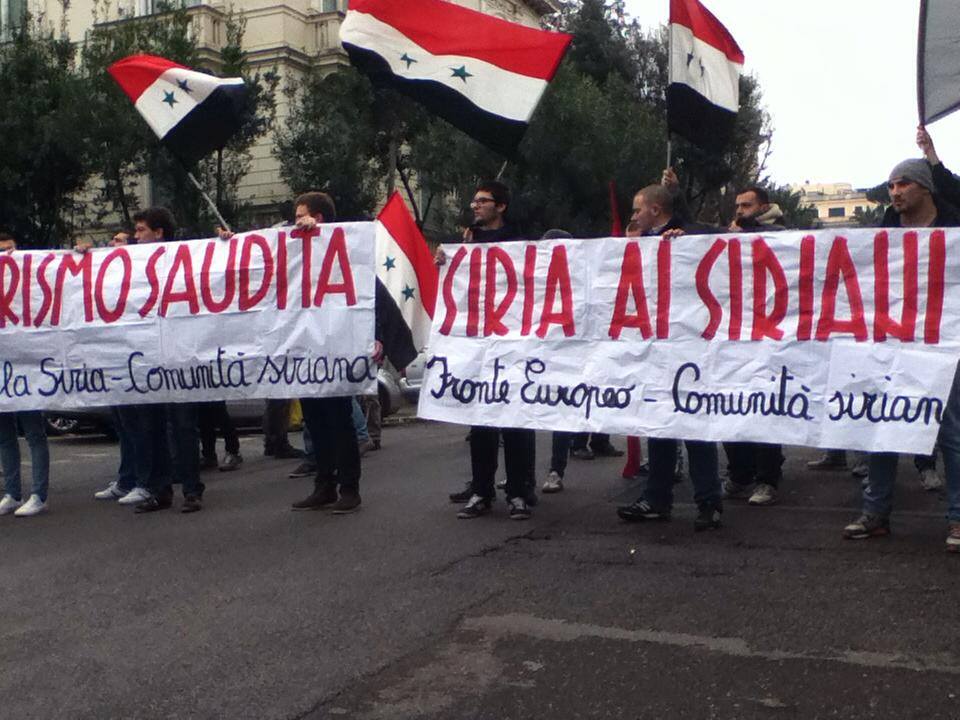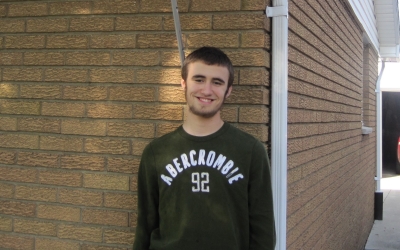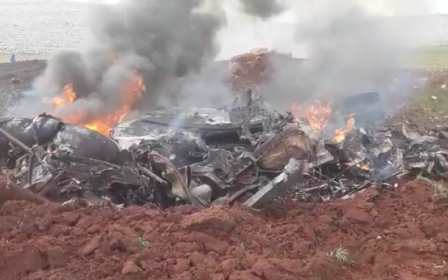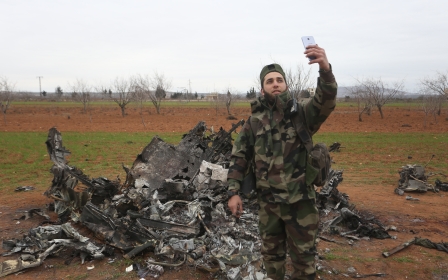Pro-Assad group launches remembrance campaign for Qassem Soleimani in Italy
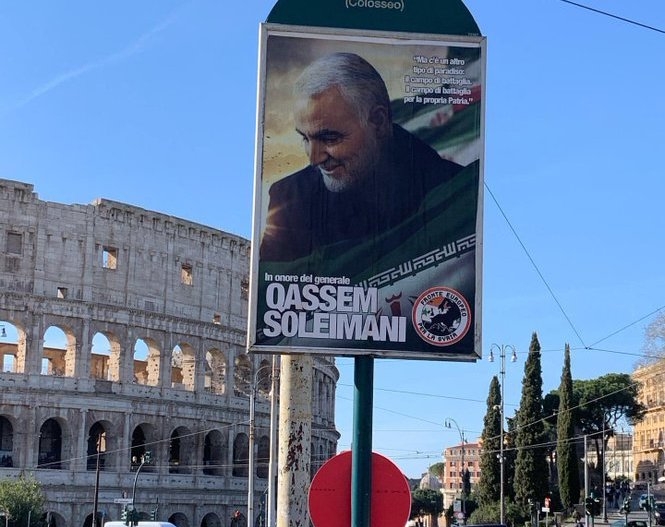
A far-right coalition has launched a campaign across Italy for slain Iranian military commander Qassem Soleimani, plastering his face on posters across the country.
Social media users reacted with both incredulity and praise as photos emerged from Rome, Milan and Torino depicting the late general, who was killed in a US air strike in Iraq in January.
One poster, placed on a signpost outside the Colosseum in Rome, read: "In honour of Qassem Soleimani".
Written alongside the photo was: "There is another paradise. That is the battle scene. The battlefield of your homeland."
The logo on the poster indicates they were put up by the European Solidarity Front for Syria (ESFS), a group of mainly far-right activists who publicly support Syrian President Bashar al-Assad.
On the group's Facebook page, they said the campaign spread from "Turin to Palermo, from Bolzano to Naples", and was aimed at honouring "the memory of a man whose commitment and dedication to the cause of the freedom and sovereignty of nations has moved and inspired millions of free men and women in the world."
"General Soleimani represented and still represents one of the most important examples of a patriot at the service of that ideal that never in the world, directly or indirectly, a nation could hinder the legitimate autonomy of another nation or oppress a people opposed to it."
The group described his killing, which took place on 3 January outside Baghdad International Airport, as an "unjustifiable act of barbarism and prevarication".
The ESFS was founded in 2013, and has been responsible for organising conferences and solidarity trips to Syria in support of Assad.
Though the group has attempted to present itself as non-partisan, it is known to have the backing of a number of far-right organisations in Europe.
The group's biggest supporters in Italy are CasaPound, a self-declared neo-fascist movement, whose members have been responsible for attacking migrants and leftists.
Rallies by the group - which idolises former Italian dictator Benito Mussolini - have often featured the Syrian flag or posters of Assad.
According to the Syrian state media agency SANA, the ESFS group travelled to the government stronghold of Tartous on the Syrian coast in 2016 to deliver medical supplies donated by the Syrian community in Italy.
International far-right solidarity
Support for Assad has been common across the far right for many years.
The former leader of France's National Front (FN) Jean-Marie Le Pen defended Assad’s crackdown in Syria after anti-government protests in 2011.
"Bashar al-Assad is a government leader who is facing a rebellion which is both civil and military," he said in an interview on French radio in 2012. "I don't find it abnormal that the Syrian state is defending itself."
David Duke, a white nationalist and former leader of the American Ku Klux Klan, has also been a prominent supporter of the Assad government, saying as early as 2005 - in an address on Syrian TV - that “your fight for freedom is the same as our fight for freedom”, referring to Syria's conflict with Israel.
“It hurts my heart to tell you that part of my country is occupied by Zionists just as part of your country, the Golan Heights, is occupied by Zionists,” he told a jubilant crowd, who chanted: “Our soul and our blood we will sacrifice for you, oh Bashar."
Experts on the far right have alleged the connection between Assad's Syria and European fascism goes back even further.
The chief investigator into the whereabouts of Nazi war criminal Alois Brunner reported in 2015 that it was "99 percent" likely that he had died four years previously in Damascus.
"We cannot prove it forensically, but we are certain that is the case," Nazi-hunter Efraim Zuroff told the BBC.
Brunner – often referred to as Adolf Eichmann’s right-hand man and responsible for the deaths of hundreds of thousands of Jews in Nazi death camps – was, according to Zuroff, also an adviser to the late Syrian president Hafez al-Assad (Bashar's father) on security and terrorism, and “the mistreatment of the Syrian Jewish community".
"[Brunner] was a notorious antisemite, sadist, fanatic Nazi," Zuroff said in a telephone interview.
"The only known interview we have with him was to a German news magazine in 1985, in which he was asked if he had any regrets, and he said, 'My only regret is I didn’t murder more Jews'."
This article is available in French on Middle East Eye French edition.
Middle East Eye propose une couverture et une analyse indépendantes et incomparables du Moyen-Orient, de l’Afrique du Nord et d’autres régions du monde. Pour en savoir plus sur la reprise de ce contenu et les frais qui s’appliquent, veuillez remplir ce formulaire [en anglais]. Pour en savoir plus sur MEE, cliquez ici [en anglais].


